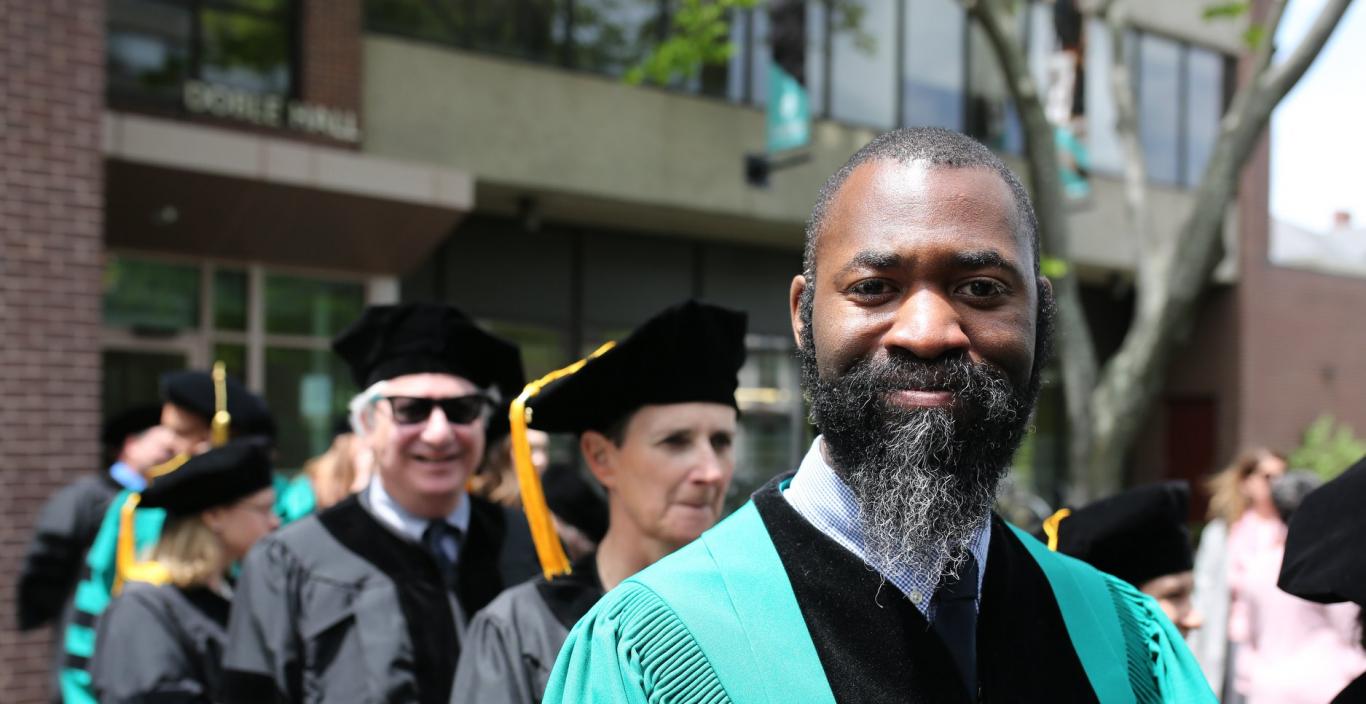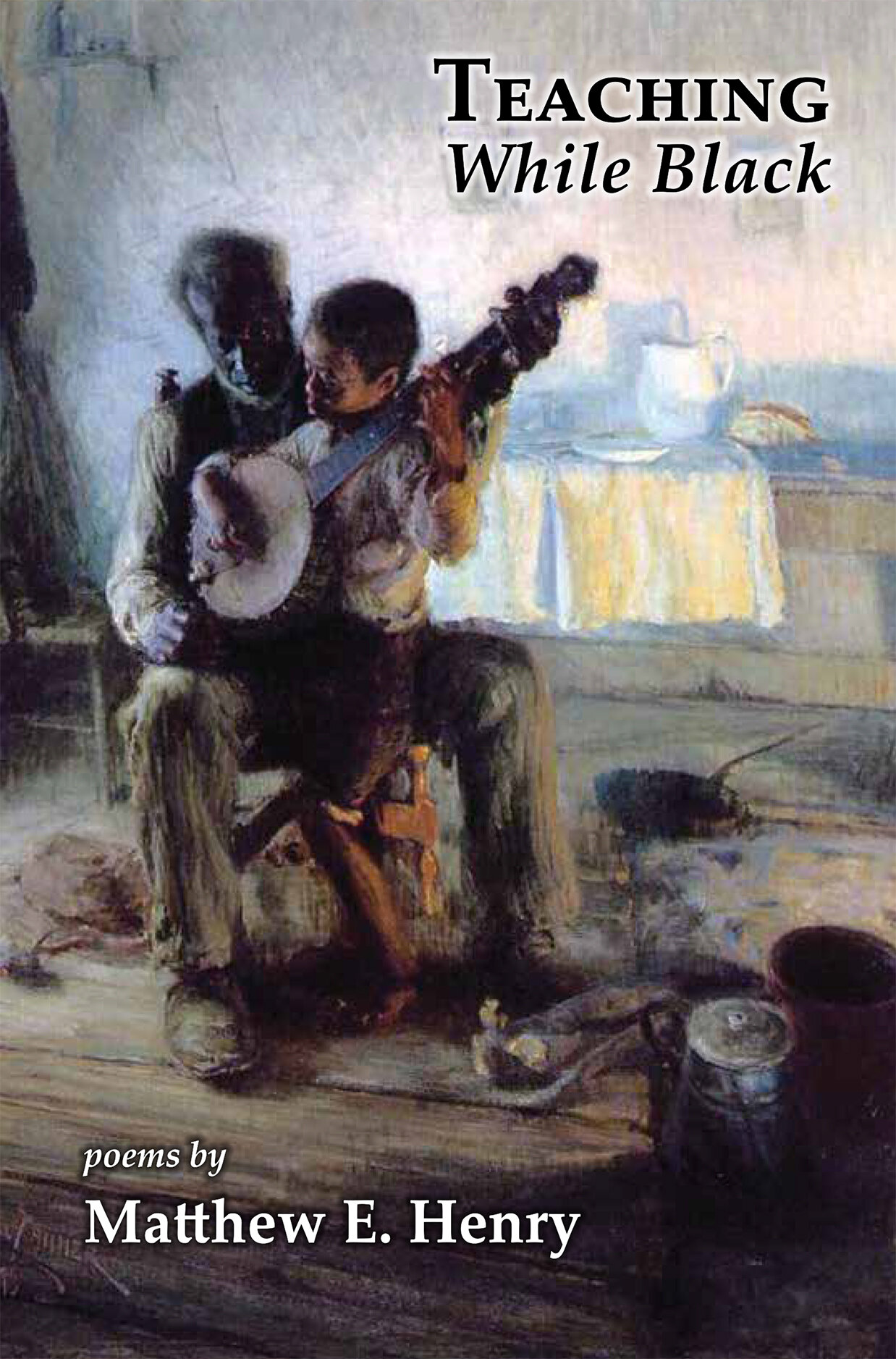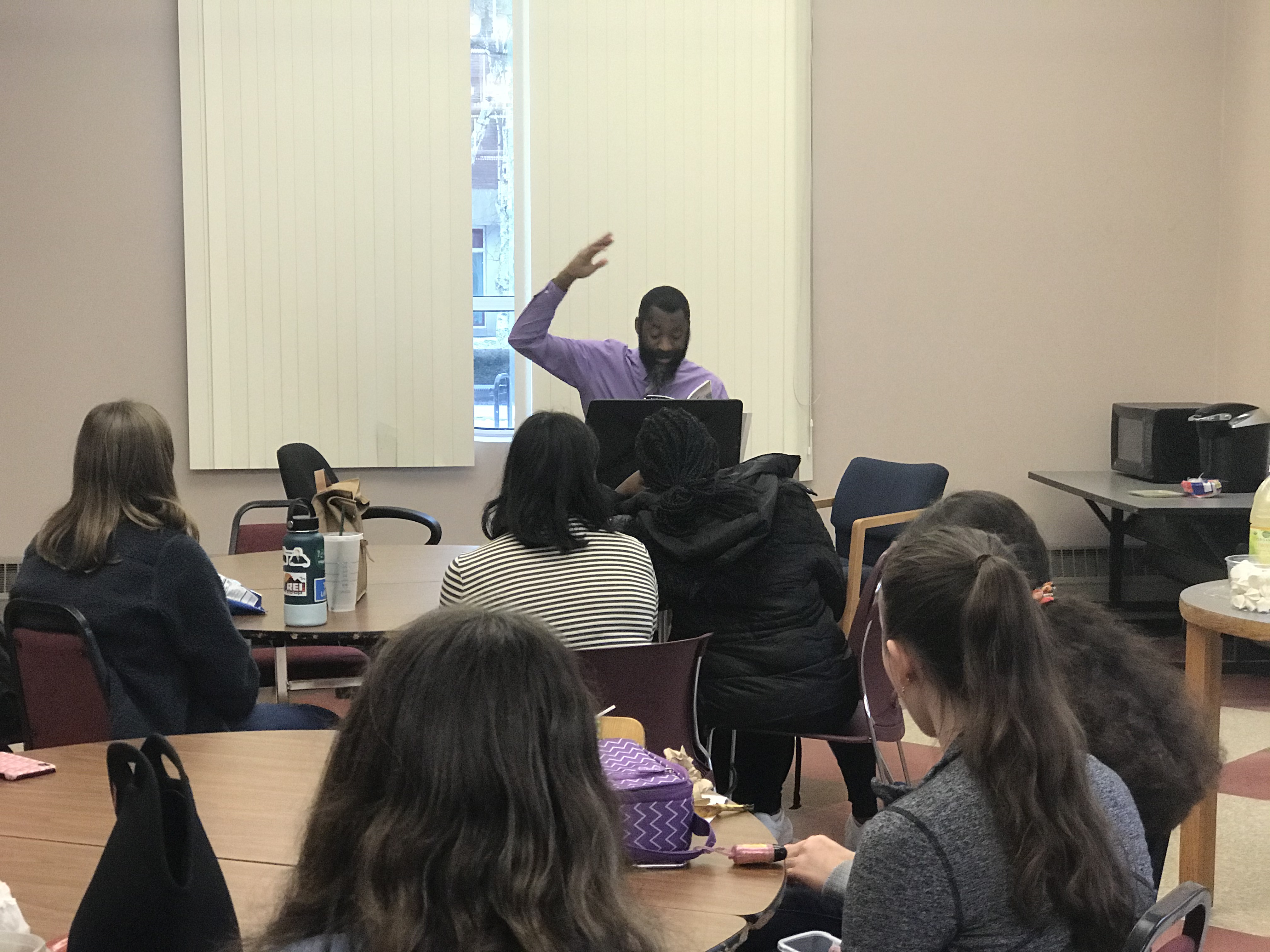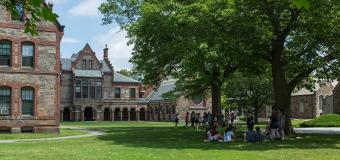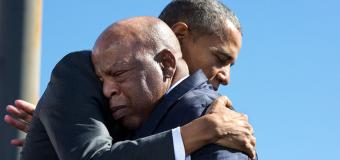If Dr. Matthew E. Henry’s debut poetry collection, “Teaching While Black,” had been published five years ago, it would still have been relevant, it’s just that fewer people would have realized it.
In a country reckoning with centuries of systematic and internalized racism, Henry’s forthright verse is an important entry into the conversation.
With 18 years of teaching education, literature and philosophy at predominantly white institutions, Henry had plenty of autobiographical poems to draw from for his debut collection — from being called the n-word, to a white student who criticized Harriet Tubman’s rescue of “only 300” slaves. Henry’s verse doesn’t skirt the painful reminders of racism’s pervasiveness, though he does veil the person or events that inspired it.
“I’m usually very cagey about which poems are me versus it being somebody else.” But, he adds, “There are poems that are 100 percent accurate to things that have happened in the (school) building.”
Taking back the narrative
The poems based on actual experiences may contain artistic embellishments, but the sentiments always ring true. In “When Asked Why ‘All Lives’ Don’t Matter,” Henry likens the death of his aunt to the phrase “Black lives matter.” As mourners lament the woman’s death from breast cancer, someone in the back of the church rises and shouts “all cancers matter,” mimicking the problematic “all lives matter” retort and the tendency of white people to “hijack a narrative to make oneself more comfortable.”
(Transcript available in show notes.)
Henry’s aunt isn’t dead (she is, thankfully, in remission), but the conversation is reminiscent of those that have happened in his classrooms.
“People are hesitant to talk about issues about race. I don’t have that problem,” says Henry, a 2017 graduate of our PhD in Educational Studies: Educational Leadership program.
An animated teacher, it is not unusual to find him gesticulating about the classics from atop his desk, while using those same classics to challenge his students’ unconscious biases, so much so that his pupils have nicknamed his courses Existential Crisis 1 and 2.
In a discussion of “A Tale of Two Cities” by Charles Dickens, students cheered on the French peasants revolting against the monarchy, that is until Henry asked them to reconsider the book in a 21st-century context, where the rebels wouldn’t be hungry Frenchmen but minorities, the impoverished and the disenfranchised, and their oppressors wouldn’t be saying “let them eat cake” but “all lives matter.”
“You guys realize you’re the ones being overthrown,” he told the class of primarily white, upper- class students. “You are the one percent.”
As the only Black man with a PhD at Weston High School in Weston, Massachusetts, Henry is both a tired and tireless voice to educate his students on racism, to bring attention to their own biases and to encourage them to become anti-racist.
“Students and I have had some come-to-Jesus conversations, sometimes over things that have been said or done in the district or the building,” he says.
Often, Henry finds that white students are oblivious to the racism their Black and Brown peers experience daily. In “An Open Letter to the School Resource Officer Who Almost Shot Me in My Class,” Henry imagines being assaulted by one of the police officers who populate his school. The poem was inspired by a classroom conversation in which a Black student recounted how a school resource officer followed him through the hall and into the bathroom, then spoke to him while he stood at the urinal. The violation of this social norm appalled the white male students, many of whom didn’t even know the school had a resident police officer.
The account prompted every Black and Brown student in the class to share their stories of racial injustice and for Henry to consider what the consequences might be if a resource officer decided he was a threat.
Henry has often wondered about those students who downplay America’s race problem.
“Would it take the death or harm of someone they know about personally for them to start believing that Black lives matter?” A forthcoming poem, penned in response to the deaths of Botham Jean, Atatiana Jefferson, Ahmaud Arbery, Breonna Taylor and George Floyd, explores this question.
Polite conversation
Henry doesn’t write about race exclusively. Sometimes he also writes about other popular dinner-table conversations: sex, religion and philosophy.
“I tend to focus on those things because those are the most poignant and the place where people are most honest,” he says. “Everything I do, but also everything I write, is faith-informed.”
But until recently, his theology- and race-themed poems were separate. Merging the two has become a newer focus for Henry, though he says, “It is going to take a lot of emotional work. I can call out racism within the church easily, but it’s finding the in-road to channel it into my poetry that is a little bit harder.”
As he wrestles with merging those constructs, Henry continues to respond to the current moment.
“Seeing this utter breakdown of civility, I can only watch so many videos of someone dying and not say something,” he laments. “(My poetry), it’s definitely more Malcolm than Martin right now.”
